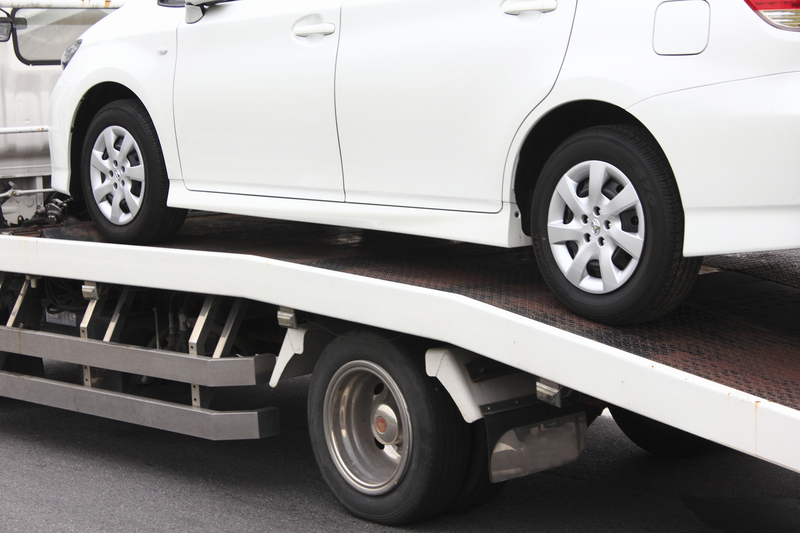How to Store a Freezer to Avoid Odors and Mechanical Issues
Keeping your freezer in top condition is essential for food safety and appliance longevity. Many people overlook proper freezer storage techniques, resulting in unwanted odors, frost build-up, and eventual mechanical problems. In this comprehensive guide, we'll walk you through the most effective methods for storing a freezer to prevent odors and avoid mechanical issues. Whether you have a standalone deep freezer, an upright freezer, or a refrigerator-freezer combo, this guide is for you.
Why Proper Freezer Storage Is Vital
- Preserve Food Quality: Prevents freezer burn and maintains taste.
- Enhance Efficiency: Optimal storage encourages consistent temperatures and lowers energy costs.
- Avoid Costly Repairs: Reduces stress on mechanical components, helping prevent breakdowns.
- Eliminate Odors: Clean organization and maintenance prevent foul smells.
Failure to store your freezer properly can result in: spoiled food, persistent unpleasant odors, excessive frost build-up, mechanical failures, and even a shortened appliance lifespan. Implementing the right storage practices not only saves you money but also enhances the safety and reliability of your freezer.

1. Preparing the Freezer for Storage
Thoroughly Clean and Defrost the Freezer
- Remove All Food: Ensure no items are left inside, as even one forgotten item can rot and produce an unpleasant odor.
- Defrost the Appliance: For manual defrost freezers, unplug and let all ice melt completely. Do not chip away at ice, as this can damage the internal lining.
- Dry Thoroughly: Wipe all surfaces with a clean, dry towel to eliminate moisture, which can lead to mold and mildew.
Deep-Clean Interior Surfaces
- Mix a Cleaning Solution: Blend 1 tablespoon of baking soda with 4 cups of warm water.
- Wipe All Surfaces: Scrub walls, shelves, drawers, and door seals. Baking soda neutralizes lingering odors and is gentle on surfaces.
- Leave the Door Open: Once clean, keep the freezer open for several hours to air out, which helps prevent any musty smells from developing.
2. Proper Placement for Storage
Pick the Right Location
- Choose a Cool, Dry Environment: Basements, utility rooms, and garages are common choices, but avoid locations with fluctuating temperatures and high humidity.
- Elevate the Freezer: Placing the freezer on blocks or a dolly allows for airflow and keeps moisture away from the appliance's bottom.
- Avoid Direct Sunlight: Heat can stress the motor and cause premature wear.
- Keep a Minimum Clearance: Ensure there's at least 2-3 inches of space around all sides of the freezer for proper ventilation.
Consider Power Supply
Even if your freezer is turned off, plugging it in periodically prevents seal deterioration and unwanted smells. If long-term storage is required with the freezer unplugged, follow steps under "Storing a Freezer When Not in Use" further below.
3. Avoiding Odors in a Freezer
Keep Odor Absorbers Inside
- Sodium Bicarbonate (Baking Soda): Placing an opened box inside absorbs unwanted odors.
- Activated Charcoal: Highly effective at neutralizing odors over months.
- Coffee Grounds: Dry, used grounds can absorb smells, but must be replaced every few weeks.
- Tip: Switch out odor absorbers every 1-3 months for best results.
Store Only Clean and Covered Foods
- Avoid Storing Open or Unwrapped Food: Use airtight containers or freezer bags to prevent aroma leakage.
- Label and Date Everything: This helps you keep track of what's inside and discard items before they become a problem.
- First-In, First-Out: Rotate your stock so older items are used before newer additions.
Regular Maintenance
- Remove Spoiled Items: Inspect the contents monthly and dispose of anything with freezer burn or anything past its recommended storage duration.
- Wipe Down Surfaces: Clean any spills or leaks immediately using mild detergent.
- Check Door Gaskets: A tight door seal keeps out air that could carry new odors inside.
4. Preventing Mechanical Problems in Your Freezer
Don't Overload or Underload Your Freezer
- Balanced Loading: Avoid over-stuffing, which restricts air flow and forces the compressor to work harder, but don't leave it too empty either -- some mass is necessary for efficient operation.
- Keep Items Organized: Store food in flat, uniform layers, and use baskets or bins for easy access. Organization helps maintain even cooling and reduces time the door is open.
Monitor and Maintain Proper Temperature
- Recommended Setting: Freezer temperature should always be at 0?F (-18?C) or lower.
- Use a Fridge/Freezer Thermometer: Periodically check to ensure your freezer remains within the safe range.
- Adjust as Needed: Fluctuations in ambient temperature (especially in garages and basements) may require seasonal adjustments.
Defrost Regularly (If Necessary)
For manual defrost models, defrost whenever ice builds up over a quarter-inch thick. Excessive frost reduces efficiency and strains the freezer's mechanics.
Clean Condenser Coils
- Unplug the unit and locate the coils at the back or beneath.
- Use a vacuum extension or coil brush to remove dust and debris at least twice a year.
- This step is critical for upright freezers and refrigerator-freezer combos.
Allow Freezer to Settle After Moving
If your freezer has been moved or tilted, keep it unplugged and upright for at least 4 hours before plugging in. This allows refrigerant fluids to stabilize, preventing mechanical damage.
5. Storing a Freezer for an Extended Period (Not in Use)
How to Properly Store an Unplugged Freezer
- Leave the Door Ajar: Always prop the door open with a towel or object. This is the most effective way to prevent unpleasant odors and mold growth.
- Remove Removable Parts: Take out shelves and drawers, clean and dry them, and store them inside the freezer or separately.
- Use Odor Absorbers: Even when off, leave a box of baking soda or a mesh bag of charcoal inside.
Protect the Exterior
- Cover with a Breathable Cloth: A sheet or light cover keeps dust away while allowing air circulation and preventing moisture entrapment.
- Check Periodically: Every few months, inspect for signs of mold, pests, or rust.
6. Common Mistakes in Freezer Storage (And How to Avoid Them)
Placing the Freezer in Extreme Environments
- Avoid hot attics, uninsulated garages, or damp basements where temperature swings and humidity can cause cooling issues and corrosion.
- If temperature extremes are unavoidable, consider models with "garage-ready" or "climate-controlled" features.
Skipping Routine Checks
- Neglecting seals, defrosting, or coil cleaning accelerates appliance wear and shortens lifespan.
- Tip: Set reminders every season, or align checks with your regular household maintenance.
Turning Off the Freezer Without Preparing
- Never shut down a freezer without first cleaning and airing it out, or you'll likely face persistent odors and possibly mold when reopening.
7. Quick Checklist: Freezer Storage Best Practices
- Clean and dry before storage
- Use odor absorbers inside
- Store foods in airtight packaging
- Maintain the correct temperature
- Defrost as needed
- Keep the freezer level and well-ventilated
- Leave unplugged freezers open
- Cover with a breathable material
- Check regularly for issues

8. Frequently Asked Questions (FAQ)
How do I get rid of a persistent smell in my freezer?
Try cleaning with a mix of baking soda and water, leave the freezer open to air out, and use commercial odor absorbers or activated charcoal for stubborn smells.
Is it okay to store a freezer in an unheated space?
Some models are designed for cold temperatures, but most function best between 50?F-85?F. Extremely cold or hot locations can cause performance problems.
Should the freezer be plugged in during long-term storage?
If storing the freezer unused for weeks or months, unplug it, clean it, and keep the door slightly open. Only plug it in if it's still in use.
Can leaving a freezer empty cause damage?
Running an empty freezer is inefficient, but leaving it unplugged and closed can encourage mold; always leave the door propped open during long-term storage.
9. Conclusion: Store Your Freezer the Right Way
Proper freezer storage isn't just about packing in food. It's about preventing odors, maintaining efficiency, and avoiding mechanical breakdowns that can ruin your investment and lead to food loss. By following the outlined strategies--thorough cleaning, right location, regular maintenance, careful food organization, and proper long-term care--you'll enjoy fresh, safe food and a reliable appliance for years to come.
Implement these best practices for your upright freezer, chest freezer, or fridge-freezer combo, and you'll keep both odors and mechanical issues at bay.
If you found this guide helpful, share it with your friends or bookmark it for future reference--every freezer owner needs to know these essential tips!



